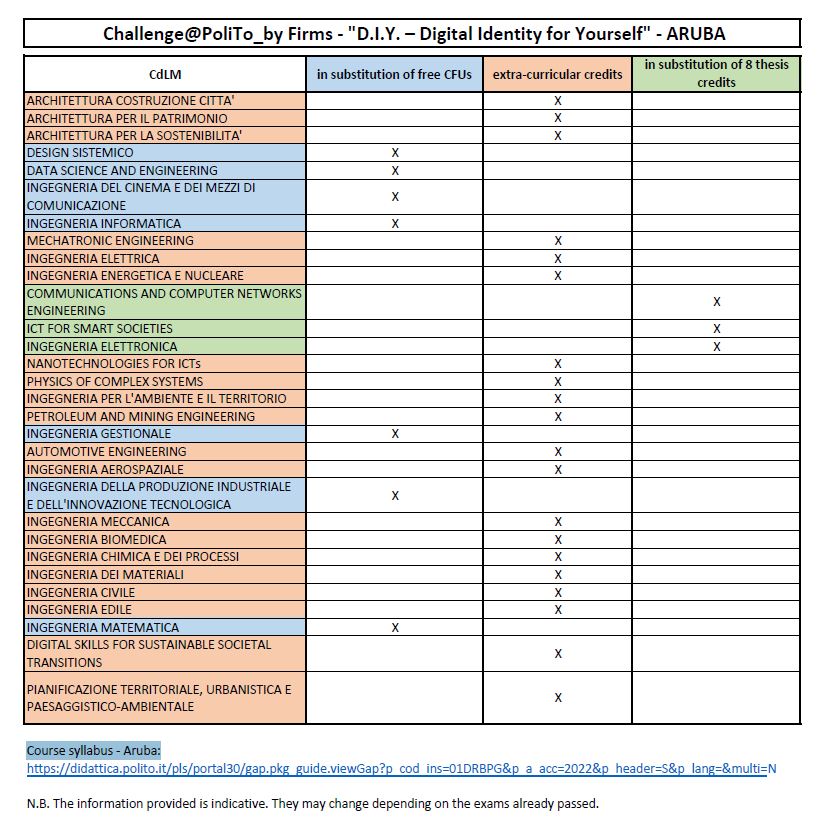Call for Ideas
The issue of digital identity is increasingly topical, i.e. the right of citizens to be recognized through a unique and cross-border mechanism, both online and offline. This right requires important protection measures, from the management of privacy, to the security of the procedures and resources used for identification.
These aspects are also strictly linked to the logic of a Digital Wallet, which can contain all the documents of a subject (personal data, health care …) and allows to provide only the required and certified data necessary in a specific situation: the data owner can decide whether the information requested is proportionate to the use in the transaction and therefore, whether to share it or refuse the request.
In Italy, among the authentication procedures for online services of the Public Administration (PA), citizens have the CIE (Electronic Identity Card), distributed in over 90% of the Italian territory, recognized by the European Union and compliant with the eIDAS Regulation (electronic IDentification, Authentication and trust Services).
The CIE allows the underlying technology (encryption RF chip that can be read by devices equipped with NFC) to be used for additional identification and security features, such as electronic gates, check-in, public transport.
Challenge
The Challenge requires students to:
- understand how the use of the CIE in Italy fits into the European context,
- observe the stream of authentication through certified identity provider,
- understand the underlying mechanisms and procedures of interaction between the website offering access “entra con CIE” (i.e. use CIE for login) – in particular with a smartphone – and the tools made available by the Ministry of the Interior as an Identity Provider,
- understand the protocols of these systems,
- propose implementations and use cases that allow a company or public body to shift the identification of users / citizens from an unsafe mode to a CIE mode,
- consider aspects related to security, privacy by default and by design,
- develop an example of a portal that uses this procedure.
The Challenges are worth 8 curricular or extracurricular credits.
Course syllabus ‐ Aruba:
https://didattica.polito.it/pls/portal30/gap.pkg_guide.viewGap?p_cod_ins=01DRBPG&p_a_acc=2022&p_header=S&p_lang=&multi=N
N.B. The information provided is indicative. They may change depending on the exams already passed.
For any questions, write to clik@polito.it
I nostri partner

Gallery







